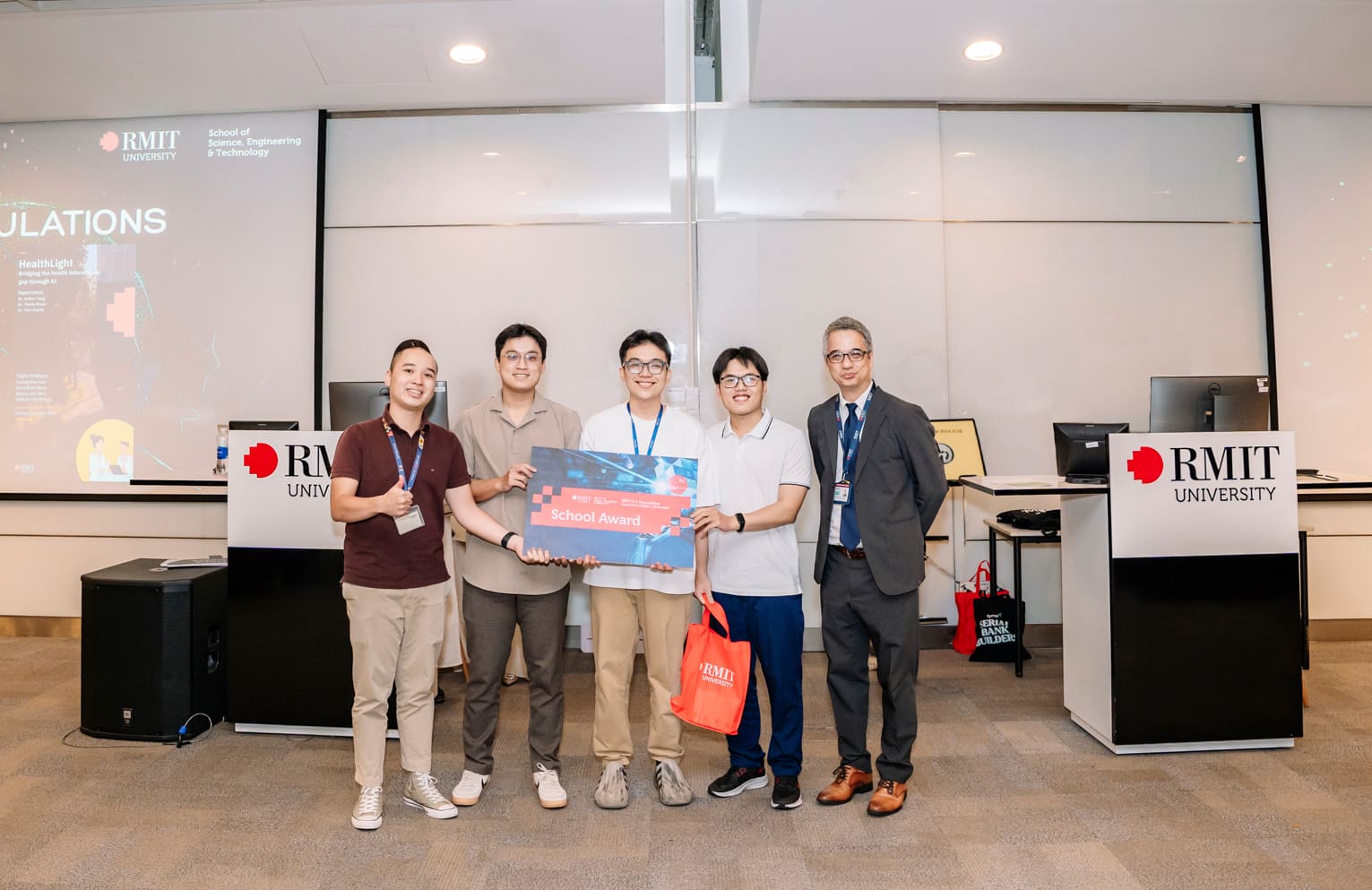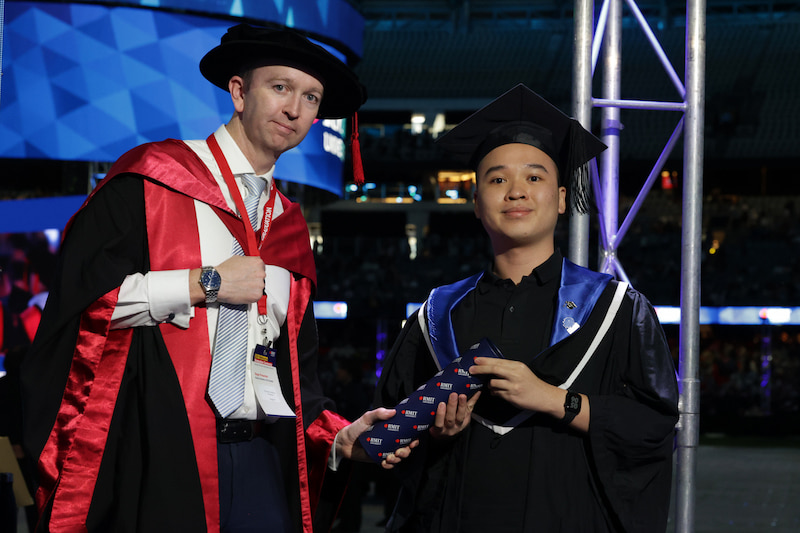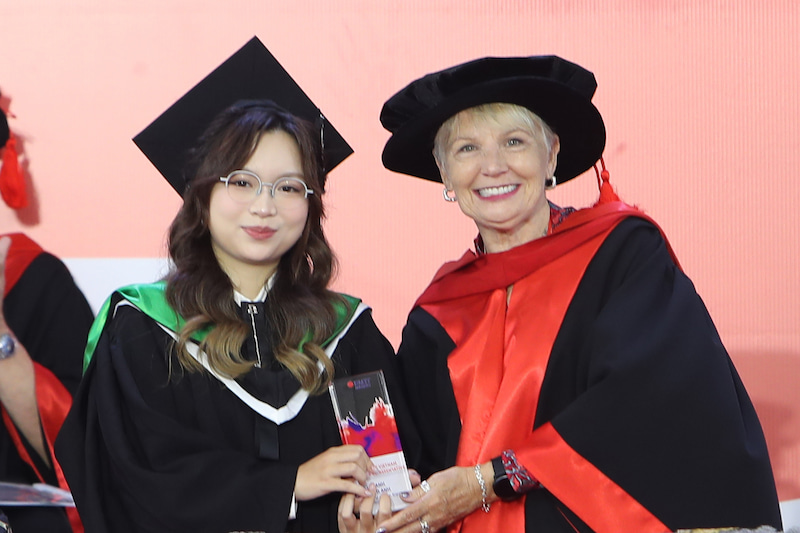Team member Nguyen Duc Minh explained the system: “Users can ask medical questions in Vietnamese through a web interface. It then searches trusted medical databases for relevant research papers, generates a simplified and accurate answer, and translates it into Vietnamese if necessary,” he said.
The team encountered several difficulties during the development of HealthLight, such as AI hallucinations, data integration, and Vietnamese language adaptation.
“Handling Vietnamese language was particularly challenging due to the limited availability of high-quality Vietnamese medical data,” team member Dinh Gia Huu Phuoc said.
“We built a translation wrapper to adapt English medical data for Vietnamese users and used specialised embedding models to better handle queries and responses in Vietnamese.
“This approach enabled the system to overcome the resource limitations of Vietnamese medical content.”
The gap in translation is where the team saw an opportunity for development if the project can be expanded further in the future.
Associate Lecturer in IT and Software Engineering and the team supervisor, Mr Tom Huynh said that the students’ understanding of LLMs evolved significantly and their project made important contributions to this field and its applications, especially through its innovative use of RAG.
“HealthLight showcases the successful adaptation of RAG systems to low-resource languages like Vietnamese, addressing the scarcity of open-source resources and expanding LLM applications beyond English. By making complex medical information accessible in Vietnamese, it bridges the healthcare communication gap and highlights the potential of LLMs for niche, domain-specific needs,” Mr Huynh said.
“HealthLight also introduces an innovative evaluation method using Vietnamese medical tests, setting a new benchmark for assessing LLMs in real-world healthcare contexts. Additionally, the RAG architecture developed has broader applications beyond healthcare, potentially benefiting fields like law, education, and finance.”
Healium’s members have gained valuable skills in full-stack engineering, AI, natural language processing (NLP), and cloud computing, along with hands-on experience in addressing AI challenges like hallucinations and adapting AI systems in low-resource languages.
All team members have secured full-time employment with top companies, including NAB, ANZ, and Shopback, even before completing their capstone projects.
RMIT Vietnam's School of Science, Engineering & Technology has developed strong partnerships with industry leaders over the years, significantly enhancing the educational experience and career prospects of its students. These collaborations provide students with access to cutting-edge technologies, real-world project experience, invaluable industry insights and job placements.
One of the most recent and exciting partnerships is with Katalon, a leading provider of software quality management solutions. Katalon is now sponsoring their software licenses to two courses at the School, bringing their industry expertise directly into the classroom.
As RMIT Vietnam continues to nurture such innovative projects and forge strong industry partnerships, it reinforces its position as a leading institution in producing graduates who drive technological advancements that benefit society. The success of projects like HealthLight demonstrates RMIT's commitment to providing a world-class education that prepares students for the challenges and opportunities of the future.
Story: Ha Hoang






